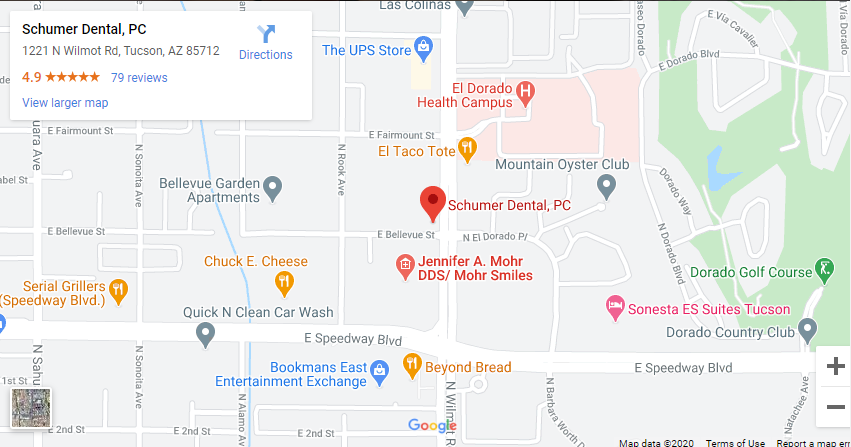We can all agree that cracked teeth don’t look great. But did you know cracks can lead to tooth loss and other issues?
Cracked teeth are painful and vulnerable. Fortunately, there are many treatments that can repair cracks and protect your oral health.
But I don’t see any cracks in my teeth…
Cracked Teeth Aren’t Always Obvious
- Pain when Chewing
If you experience pain when you bite down or chew, it could be due to many oral health issues, including a crack you cannot see.
- Sensitivity
If you suddenly find that your teeth hurt when drinking cold beverages or biting into hot food, it could be because a crack is causing the pulp of the tooth to become irritated.
- Pain with No Clear Cause
If a toothache starts for no apparent reason, it could be due to any number of oral health issues, including a fractured tooth.
Do I need to worry about cracking a tooth?
Certain Bad Habits Increase Your Risk for Cracks
Anyone can suffer a cracked tooth, but you face a greater risk if you:
- Grind or clench your teeth
- Have misaligned teeth
- Play contact sports
- Chew ice or fingernails
- Eat large quantities of sugary foods
- Have an eating disorder
- Suffer from acid reflux
So why do teeth become cracked?
Injury, Pressure, and Weakened Tissue Can All Damage Your Teeth
- Trauma
No matter how healthy your teeth are, an impact with a blunt object can easily result in a dental fracture. Cracked teeth are a common injury that occurs in sports, car accidents, the gym, or in the home.
- Repeated Pressure
Certain teeth may be subjected to more than their share of bite pressure due to misalignment, using certain teeth to bite fingernails or open packages, or bruxism.
- Compromised Dental Tissue
Acidic foods, stomach acid, and genetics can all result in eroded and weakened dental enamel, making your teeth more susceptible to developing fractures.
How will my dentist and I know if my tooth is cracked?
“The most important factor in diagnosis of a cracked tooth is awareness that these cracks occur.”
– Caryl E. Cameron, DDS, Northwestern University Dental School
Prevention Is Simple
- Attend Regular Dental Checkups
Your dentist can identify signs of teeth grinding and issues such as misalignment, and recommend treatments to correct these issues.
- Take Precautions
Wear a mouthguard when playing sports and take safety measures during DIY projects around the house.
- Break Bad Habits
Chewing things like pen caps, ice, and fingernails can eventually result in a dental fracture. Too much sugary or acidic food can also increase your risk of a cracked tooth.
If I can’t see a fracture, how will my doctor find it?
X-Rays and Other Tests
- X-Rays and Microscopes
Taking an x-ray of your bite can help to reveal cracks that are not immediately apparent to the naked eye. Microscopes can also reveal cracks.
- Transillumination
Your dentist may place a light source against the tooth. A crack will interrupt light passing through the tooth.
- Bite Tests
If you bite down on an object such as a cotton roll and then suddenly release the pressure, any resulting pain is likely indicative of a cracked tooth.
My tooth is cracked. Can it be repaired?
Treating Cracked Teeth
- Veneers and Bonding
Veneers and bonding can conceal minor cracks that do not threaten your oral health.
- Dental Crowns
A more serious dental fracture may require a crown, which can provide protection against further damage.
- Root Canal
Some cracks can result in a dental infection. A root canal can remove infected soft tissue and salvage the exterior, which is restored with a dental crown.
- Extraction
If a tooth is too compromised, extraction may be the best solution. The tooth can be replaced with a dental implant and crown to maintain the balance of your bite and prevent jaw atrophy.
If you think your tooth has become damaged…
Contact a Dentist Right Away
If you can see a dental fracture, or if you are experiencing symptoms such as tooth pain, your best bet is to speak to a dentist immediately. Schedule a consultation today to find a solution.






























